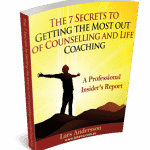Posttraumatic Stress Disorder (PTSD) and sleep problems
 Posttraumatic stress disorder (PTSD) is a chronic psychiatric condition resulting from the experience of a traumatic event, such as sexual assault, combat experience, natural disaster experiences, motor vehicle collisions and other accidents.
Posttraumatic stress disorder (PTSD) is a chronic psychiatric condition resulting from the experience of a traumatic event, such as sexual assault, combat experience, natural disaster experiences, motor vehicle collisions and other accidents.
PTSD sufferers commonly experience fear, hopelessness, recurring mental imagery of the event, nightmares and other sleep disorders.
Sleep disturbances often start shortly after exposure to a traumatic event, and have a tendency to become a severe and long-standing problem. When a person experiences sleep disturbances following a traumatic event, they are more likely to develop severe PTSD symptoms than people who don’t experience sleep problems. Furthermore, it also appears that pre-existing sleep disturbances may diminish people’s resilience, so that people who are suffering from sleep problems are more likely to develop PTSD following a traumatic event.
Another aspect of the connection between sleep problems and PTSD is that the treatment of PTSD often is negatively affected by the coexistence of sleep problems, and it has been shown that improving sleep quality decreases the severity of PTSD symptoms as well as improves responses to treatments.
While the debate continues around the degree to which sleep problems may contribute to the development of PTSD, and whether sleep problems are a core feature of PTSD or simply one of many resulting symptoms, it is clear that people who suffer from sleep problems have poorer outcomes from PTSD treatments. Treating sleep problems can therefore be expected to improve quality of life for many PTSD sufferers.
PTSD treatments
I have over the years helped many, many people recover from the effects of past trauma, simply by providing specific treatments as part of Counselling/Psychotherapy! If you, or someone you know, suffer from the effects – sleep related or not – of having experienced a traumatic event, contact me today, and find out how I can be of help.
[This article is a condensation of a research article from 2011 by Nicholas H. Orr, MD and Christopher J. Lettieri, MD, which you can read here: Sleep Disturbances and Posttraumatic Stress Disorder.]

